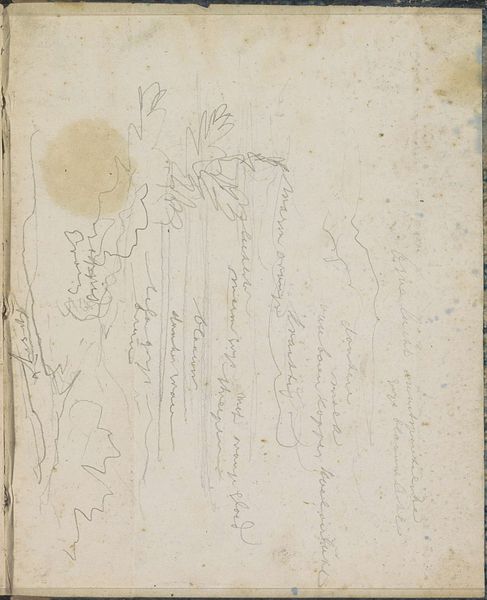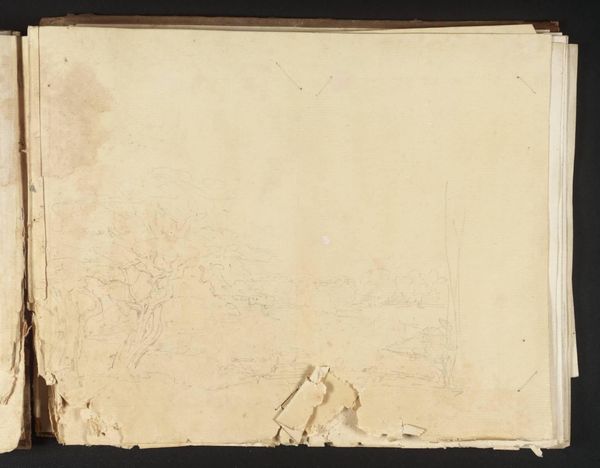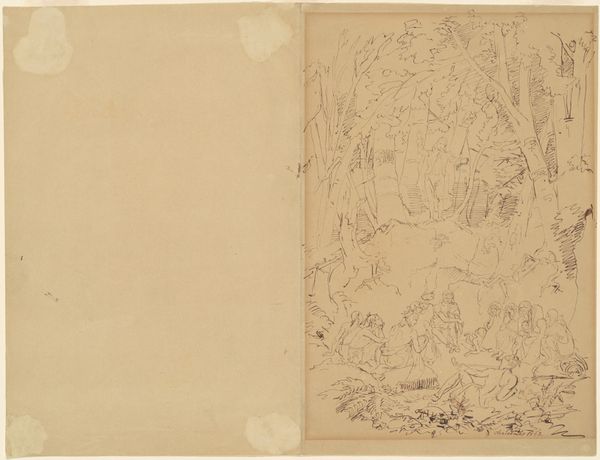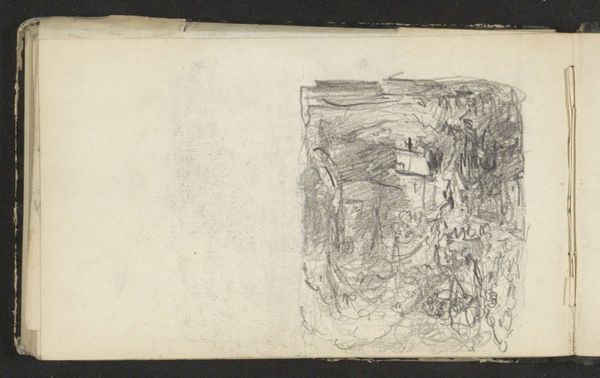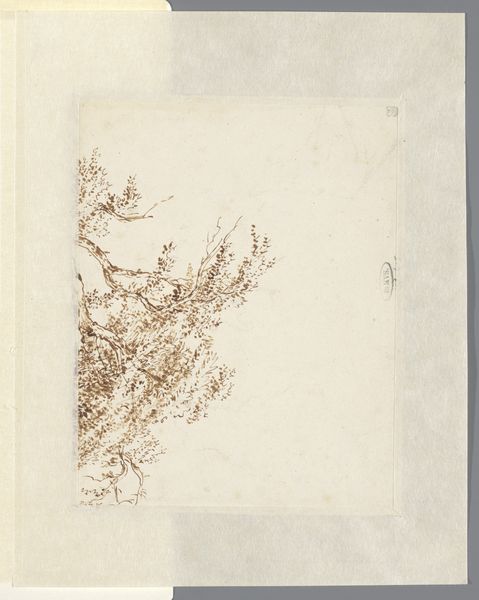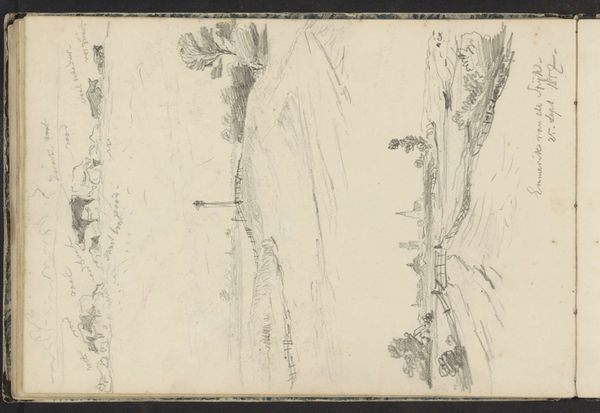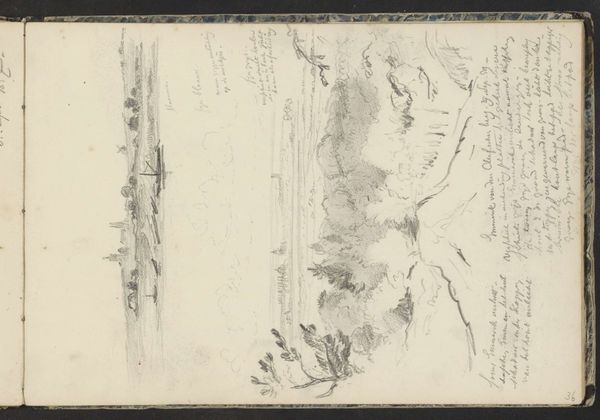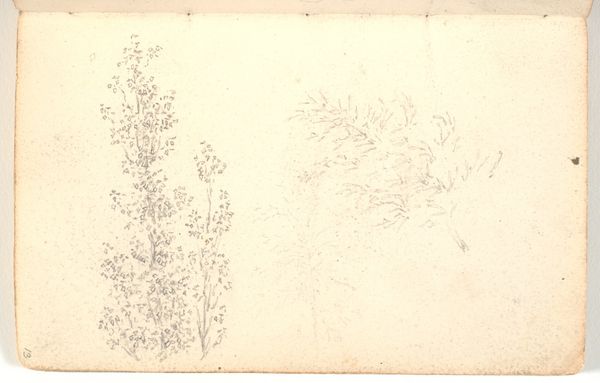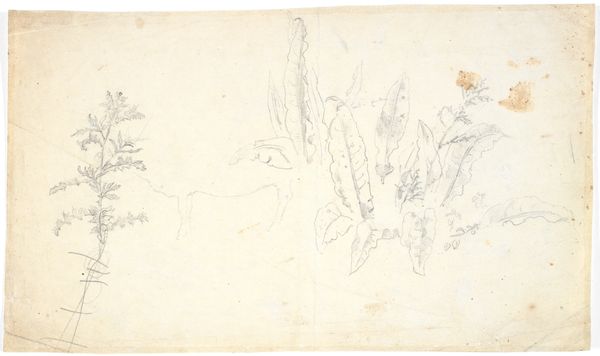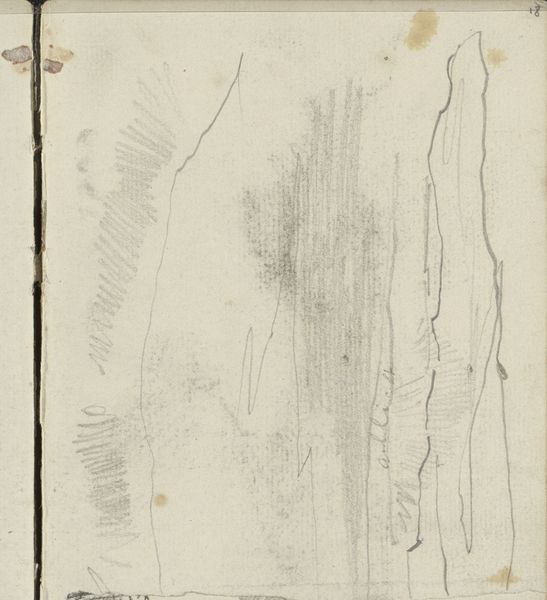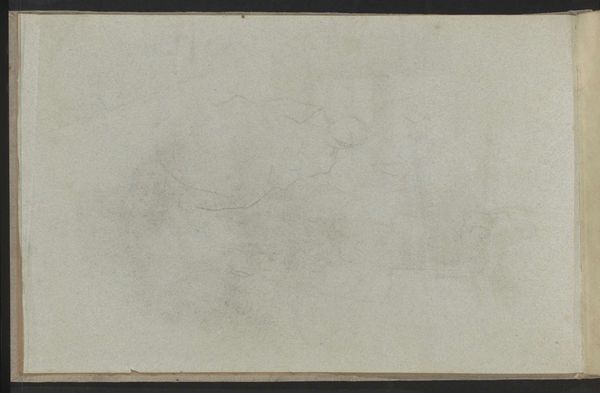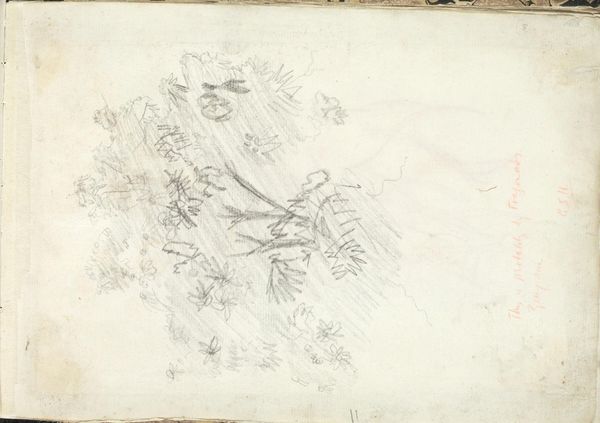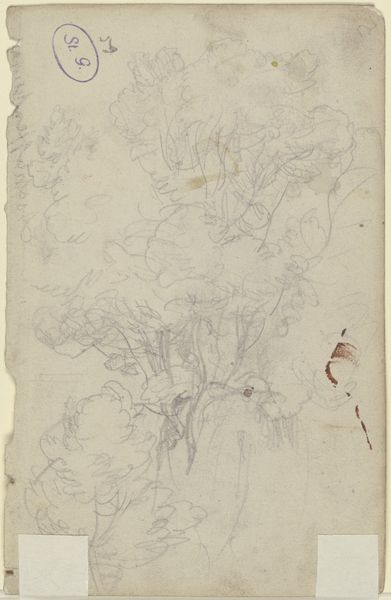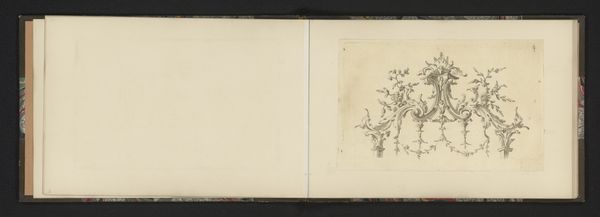
drawing, paper, pencil
#
drawing
#
aged paper
#
toned paper
#
sketch book
#
incomplete sketchy
#
hand drawn type
#
landscape
#
paper
#
personal sketchbook
#
romanticism
#
pen-ink sketch
#
pencil
#
pen work
#
sketchbook drawing
#
sketchbook art
#
realism
Copyright: Rijks Museum: Open Domain
Editor: This is *Heidelandschap en -plant*, or Heath Landscape and Plant, an 1843 to 1857 drawing by Johannes Tavenraat. It's graphite and pen on paper. The quick, faint lines create a sense of immediacy, like a fleeting observation. What can you tell me about the significance of sketches like this? Curator: It speaks of liminality, doesn't it? This isn’t a finished painting for the salon. This is something intensely personal. Sketches such as these are more akin to diary entries—a glimpse into the artist's inner world and their immediate experience of the natural world. The plant itself, rendered with delicate detail against the hazy backdrop, becomes a symbol, perhaps, of resilience or quiet beauty in a seemingly barren landscape. What emotions do you feel when observing it? Editor: I notice a sense of quiet contemplation. The heather almost looks like it's whispering secrets. But is there also a connection between the heather and Dutch identity? Curator: Absolutely. The heath has deep roots in the Dutch psyche. Historically, the heathlands were vast, often perceived as wild and untamed spaces but, also, a source of identity for rural communities. So Tavenraat's choice isn't merely observational; it engages with this powerful symbolism, the heather representing a direct link to a specifically Dutch landscape and cultural memory. Do you notice the handwritten notes beside the landscape? Editor: Yes, and I hadn't considered those to be part of the art, but that's so obvious now that you mention it! Curator: Indeed! The combination is especially rich because we see the landscape as art as well as the writing - like field notes - becoming an integral part of the experience. Both, in combination, reveal the artist's process of seeing and recording, giving the sketch another dimension that speaks about the act of capturing and preserving a specific time, place and thought. Editor: I see the landscape differently now. It really invites us to consider the relationship between nature, memory, and artistic expression. Curator: Exactly. It's a small work with vast implications when it comes to cultural understanding.
Comments
No comments
Be the first to comment and join the conversation on the ultimate creative platform.
